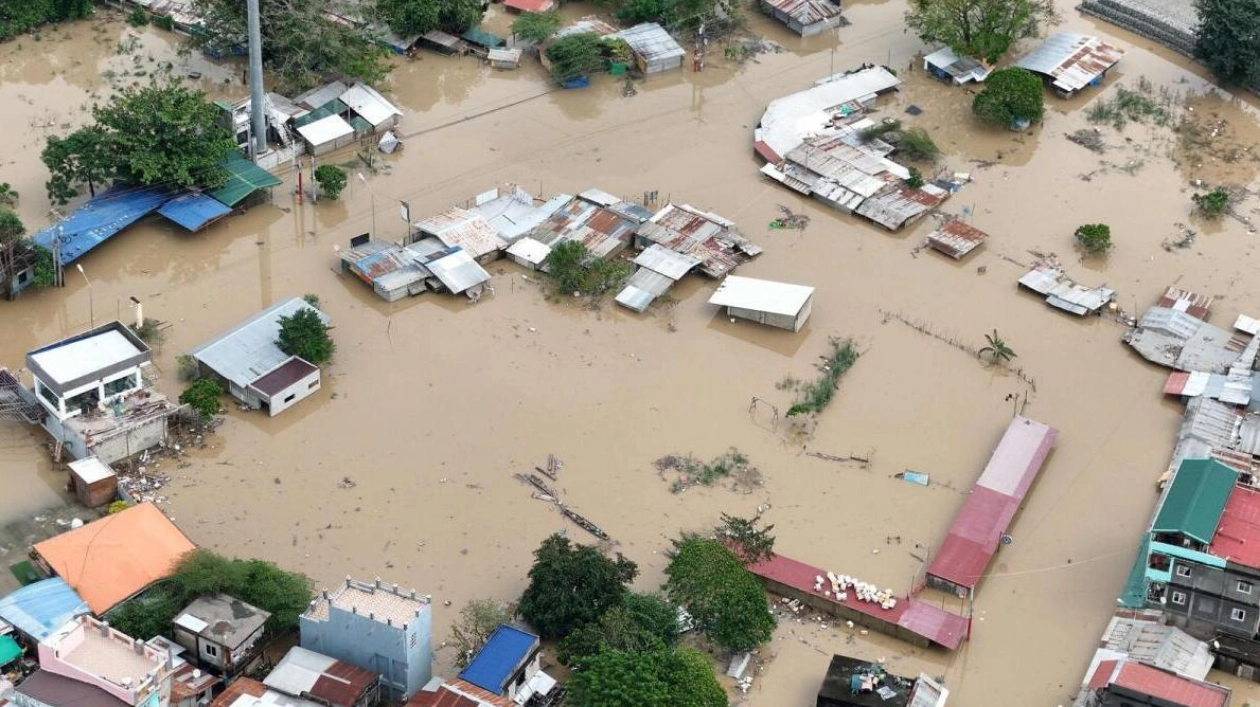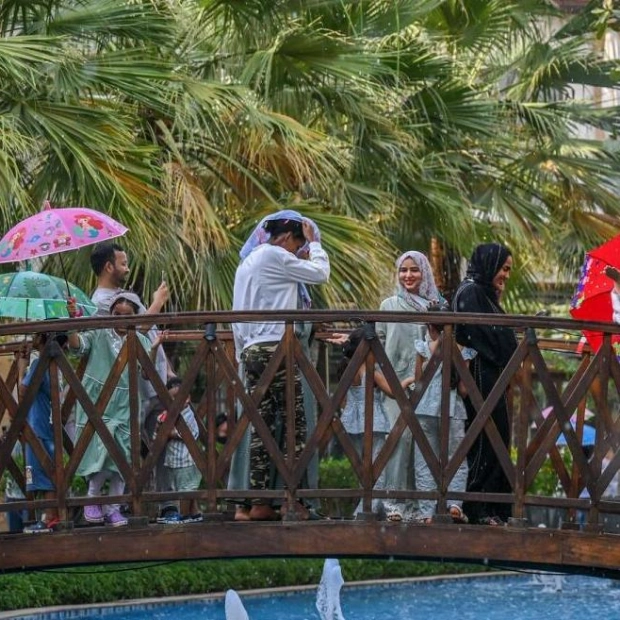Days after a series of consecutive tropical cyclones devastated the Philippines, some Filipinos in the UAE were still struggling to contact their families back home, relying heavily on social media updates and news reports to gauge the situation in their communities.
Lani Catapang, a 41-year-old Dubai resident, shared with Khaleej Times that her family in Dilasag, a municipality in Aurora province, was severely affected by the latest typhoon Man-Yi (local name: Pepito). "Many houses in my region have been flattened, and the roof of my house was blown away. I haven't been able to speak to my family for the past four days. This month's salary will go entirely towards repairing our home," she said.
Catapang last communicated with her parents and siblings on November 17, when Tropical Cyclone Wind Signal No. 5 was issued over parts of Aurora, as well as neighbouring provinces of Quirino and Nueva Vizcaya as Man-Yi made landfall. The strong winds had carried away the roof of their one-storey house.
On November 19, the local government of Aurora declared a state of calamity due to the combined impact of typhoons Toraji (Nika), Usagi (Ofel), and Man-Yi (Pepito). These cyclones displaced more than 61,000 people across the province, which is located in the eastern part of Central Luzon, facing the Philippine Sea.
For Catapang, the only solace was seeing local media reports about ongoing clean-up operations to remove fallen trees, repair communication and electric lines, and clear debris blocking roads and waterways. No casualties were reported, but thousands of homes were damaged, and significant losses were sustained in agriculture, infrastructure, and small businesses in Aurora.
According to the Philippine government, the three typhoons affected over three million people or 820,000 families across 34 provinces. About half a million individuals were displaced, with thousands still in evacuation centers.
Another Dubai resident, J Rom Anoling dela Cruz, 36, whose family lives in Isabela, said he had never seen such devastation. He noted that, on average, the Philippines experiences 20 storms and typhoons in a year. However, since the last week of October, six have hit the country, including four in November (Typhoon Marce hit the Philippines early November). A total of 163 people died in the past six storms.
Super typhoon Man-yi left the Philippines on November 18, but as of November 20, several areas in Isabela remained flooded. The provincial government also declared a state of calamity on November 19 due to massive flooding that submerged houses, killed livestock, and caused millions in agricultural and infrastructure losses.
Dela Cruz said the main source of his parents' income – a fish pond – was destroyed. Water also entered their house up to chest-deep. He added: "Until now, there is no electricity in our town, and there's only intermittent network signal. Thankfully, relief goods were sent to my family."
Another area heavily damaged by Typhoon Man-Yi was Catanduanes in the typhoon-prone Bicol region, south of the capital Manila. Gian Sarmiento said no deaths have been reported but his family and the entire province need urgent aid as power and water supply were still down. "I can only get information from social and local media but I'm unable to call my parents," he added, noting that more than 750,000 people took refuge in emergency shelters, including churches and a shopping mall in their island-province.
Meanwhile, Lorely Magdaraog, 43, said her town in Milaor, Camarines Sur, was spared from Typhoon Man-Yi but her family has yet to recover from the impact of Typhoon Trami (Kristine) that happened in the last week of October.
Magdaraog shared photos of her house submerged in flood, and almost all their family belongings and home appliances were left floating. She added her daughter had to be rescued by neighbours before the water reached the ceiling of their one-storey house.
On November 19, the Philippine Department of Social Welfare and Development (DSWD) said government authorities will continue to release humanitarian assistance and introduce interventions to affected residents, such as emergency cash transfer and cash-for-work scheme. Priority will be given to the provinces of Aurora, Catanduanes, Cagayan, Quirino, Nueva Vizcaya and Camarines Sur, DSWD added.
As for the Filipino expats whose families were affected by the storms, they have been scrambling to immediately send money back home. Catapang summed up the situation: "This month's salary will be spent repairing our house."
Source link: https://www.khaleejtimes.com






